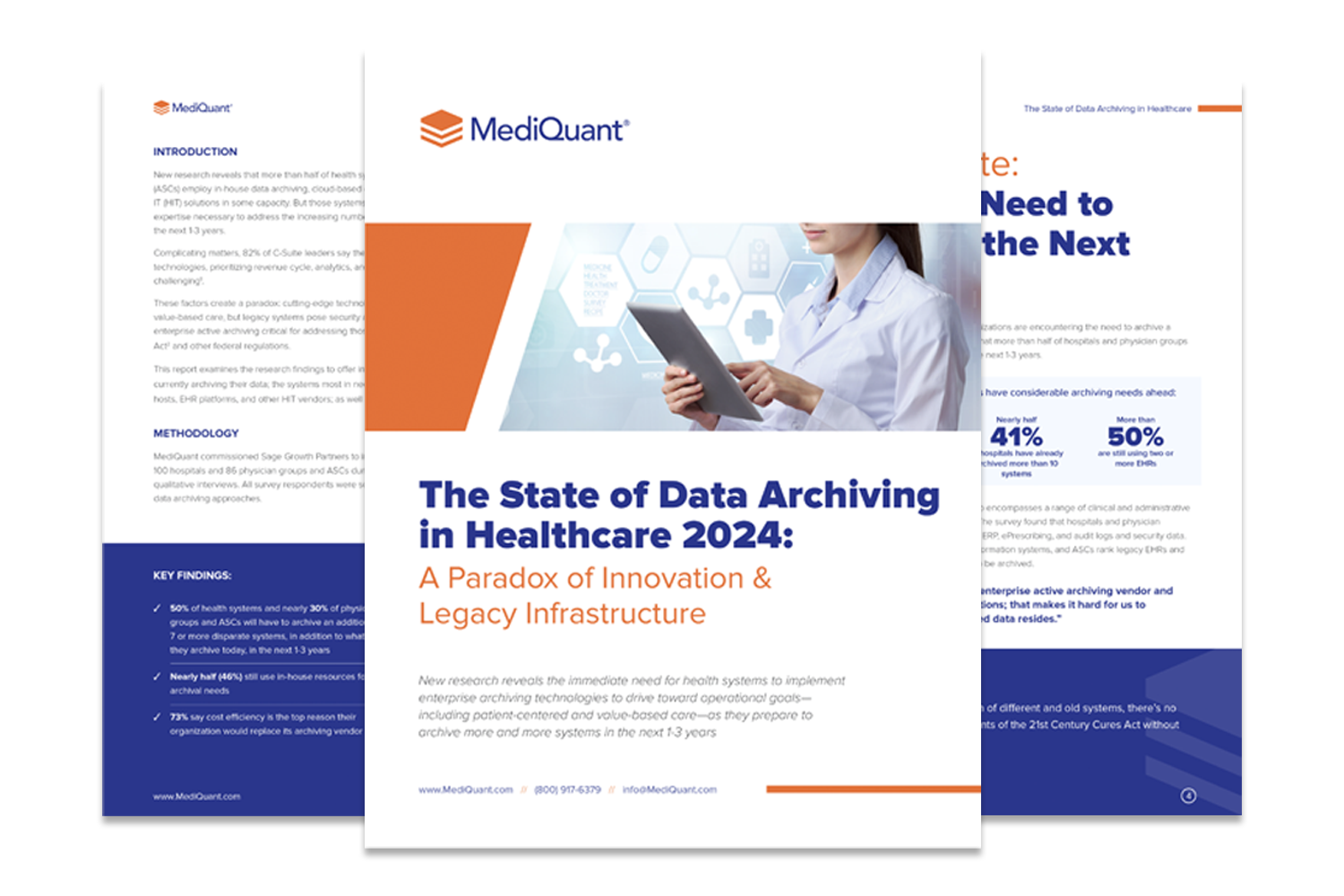Massive EHR adoption has multiplied the volume of data available to healthcare providers. Today, more than 75 percent of office-based clinicians and 96 percent of hospitals in the US use an EMR/EHR system. However, for EHRs to fulfill their purpose, there must be an effective EMR management system. When EHR data is well utilized, it can lead to improved care outcomes, lower operating costs, and improved clinician productivity. In particular, EHR data can enable providers to:
- Analyze demographic and disease trends
- Personalize treatment and interactions with patients
- Improve communication and collaboration between physicians and patients
- Improve the treatment of patients during referrals
Below, we’ll highlight a few effective EMR/EHR data management strategies.
1. Ensure Accurate EHR Data Collection
Inaccurate EHR data can have serious adverse effects on patients. Without accurate patient medical history, physicians can’t correctly diagnose the patient’s condition or recommend the best treatment plan.
Unfortunately, physicians are the ones who enter most of the data in the EHR database. But they are not primarily data entry personnel; their primary assignment is to care for patients.
To ensure accurate data collection, providers should use technology solutions designed to reduce the data entry burden and increase the accuracy of data captured by physicians.
A few examples of these data capture solutions include speech-to-text and connected medical devices that transfer data directly into the EHR. The use of an interoperable EHR that has HL7 or FHIR connectivity to the lab information system, radiology department, and practice management can reduce data capture errors.
2. Work Toward Full EHR Integration
Most EHRs are designed to store, document, share, and retrieve data on patient care. They work well as standalone repositories of information for physicians to treat patients effectively.
However, for effective use of the massive amount of information stored in EHRs, they need to be connected to other health information systems. Linking the EHR to financial, insurance, call center and patient portal systems gives a comprehensive view of patient activities.
That is why adding robust appointment scheduling or CRM apps to the suite of applications in the organization is essential for the effective utilization of EHR data.
Working towards integrating EHR data with other essential systems like the lab information system, radiology information system, practice management, and providing mobile access for physicians will improve physician productivity.
3. Comply With Regulatory Requirements
Breaching the regulations of the Health Insurance Portability and Accountability Act (HIPAA) can put providers at risk of paying heavy violation fines.
HIPAA regulations specify the security and privacy standards needed to safeguard protected health information (PHI). Examples of protected health data include patient names, phone numbers, addresses, date of birth, social security numbers, and insurance information.
Since EHR data is classified as PHI, it is critical to comply with security laws and encrypt data properly when sending or retrieving such information.
4. Migrate Data to the Cloud
Fragmented data is a common problem among healthcare providers. Due to the laws that govern data retention, many practices have to store patients’ medical records for several decades.
Unfortunately, as certain systems become obsolete, they join the pool of legacy systems. Eventually, the organization has to keep maintaining data silos that can’t communicate with each other.
To solve this problem permanently, providers need to consider moving their data to a single cloud-based repository. While a comprehensive cloud data migration strategy is not a small undertaking, the move can be implemented in phases.
Beginning with a more straightforward migration project that involves moving legacy or archived data, a provider can develop the capability to handle the total movement of significant applications and data to the cloud.
Contact Us for More EMR Management System Solutions
If you want to manage your EHR data effectively for maximum productivity and improved care quality, contact MediQuant at 844.286.8683 today. Get in touch through our contact page to book a free consultation or a demo of any of our data archiving solutions.


